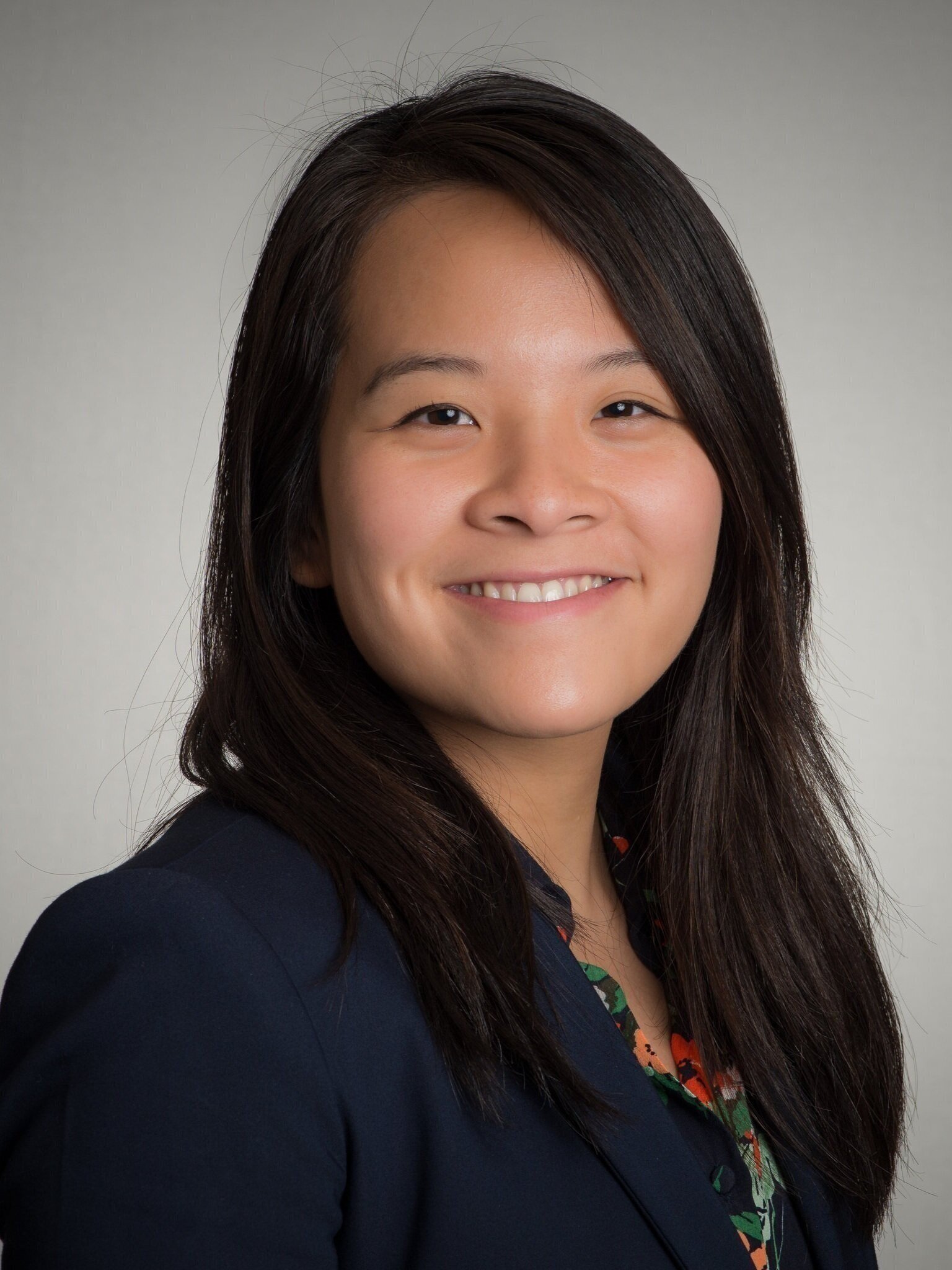Eunice Lau
Eunice Lau, PhD, is a Patent Agent who found her career interest after an internship working in patent law during her PhD work. Since graduating from the UCSD Biological Sciences PhD program, she has held positions as a Patent Agent at Morrison & Foerster LLP, Encodia, Inc., and is currently at 10x Genomics. In this line of work, Eunice has the opportunity to continually learn about innovations in various fields. Amongst her achievements, she is a NSF Graduate Research Fellowship and NSF GK12 STEM Fellowship recipient.
Can you describe your academic and professional background? What path led you to pursue this field?
My scientific training started when I was an undergrad at the University of Washington, majoring in biology and neurobiology, and doing research studying zebrafish pigment pattern development. From there, I joined the UCSD Biological Sciences PhD Program, and my thesis work was on C. elegans neurobiology and behavior at Salk Institute in the Chalasani Lab. In the third year of the PhD program, I spent a summer at Morrison & Foerster LLP (MoFo) as a Scientific Analyst Intern. This experience absolutely solidified my desire to pursue patent law as a career. What captured me about this career path was the ability to use my scientific background heavily in understanding the technology I was working with and combining that with the challenges in patent law. I finished my PhD and returned to MoFo full time, and spent the next few years drafting and prosecuting patent applications for clients in a variety of fields (biology, immunology, chemistry). From there, I joined a biotech startup as a patent agent, working from within the company setting to build and manage the patent portfolio.
Can you tell us about your current responsibilities? What is a typical day or week like in your role? What do you enjoy about your current job and work environment?
The work can be generally broken down into 1) patent preparation and drafting, 2) patent prosecution, and 3) understanding IP (intellectual property) in our technology area. Patent preparation involves drafting, writing, and identifying patentable features of an invention, and this process is often started by attending meetings with scientists and discussing their inventions. Patent prosecution includes preparing claims and developing strategies to get the claims granted. Understanding the IP landscape includes a constant monitoring of the field.
The fun part for me lies in the challenges of deeply understanding technology across a broad array of areas. All three aspects of the work I described above require an in-depth understanding of the science behind the invention. Most patent practitioners in the biology/chemistry space have a PhD in a relevant field. Between all the technologies that I've worked on from the law firm setting and the two biotech companies I've been at, it's been challenging to learn all these different fields but also rewarding to be able to articulate and communicate the ideas as they relate to patents. Working in IP exposes one to the latest technology being developed, and it is fascinating to marvel over the amazing new ideas out there.
Do you have any professional plans for the future? What are some future career paths that could open up for someone in your position, 5-10 years down the road?
I find the experience of working in different settings with various technologies enriching for development and growth in this field. I also continuously pursue opportunities to connect my work in IP with other legal and business aspects of biotech. There is the option of pursuing a law degree, some attend law school straight out of their PhD, some attend law school while working as a patent agent, but it's not an absolute must to hold a law degree. Patent Agents take the patent bar exam and are registered to practice patent matters before the USPTO. To me, there is always growth in this work because the technology is constantly changing and the same can be said for the law too.
Do you have any final words of advice for those navigating these career questions?
I would recommend someone considering this career to find out what it's like and whether it suits their personality. It's a lot of writing, reading, analyzing, organizing, detail-oriented work, hard deadlines, and we spend hours agonizing over words! The environment can be very different from the lab setting as well. Talk to as many patent practitioners as you can to find out what they like and dislike about their work. Experience can also vary widely depending on setting, for example, there are patent-related roles in large law firms, boutique law firms, small biotech start-ups, large biotechs, in pharma, in academic institutions, etc. It's worth getting to know what options are out there and working towards what suits you and captures your interest the most.

